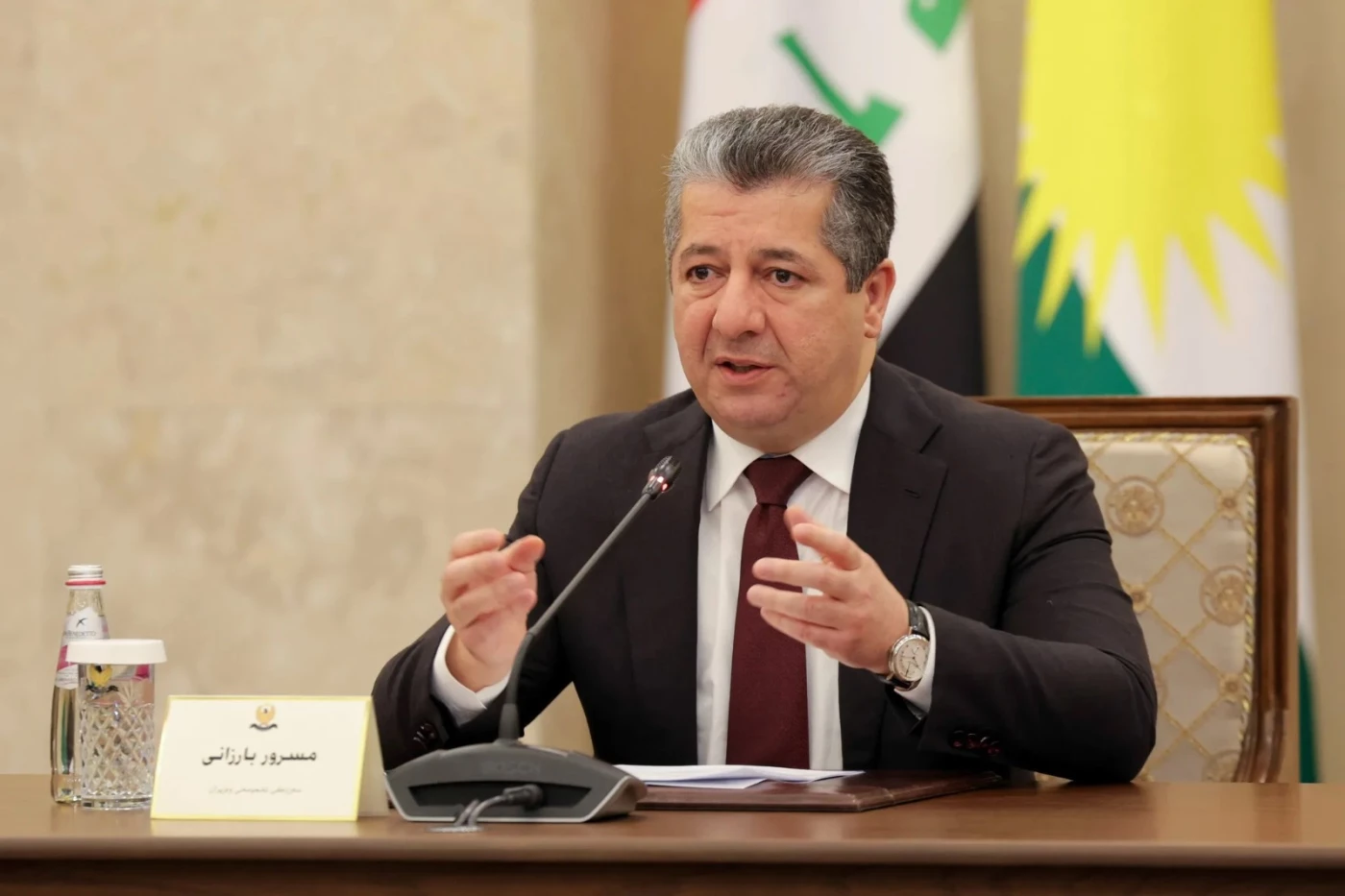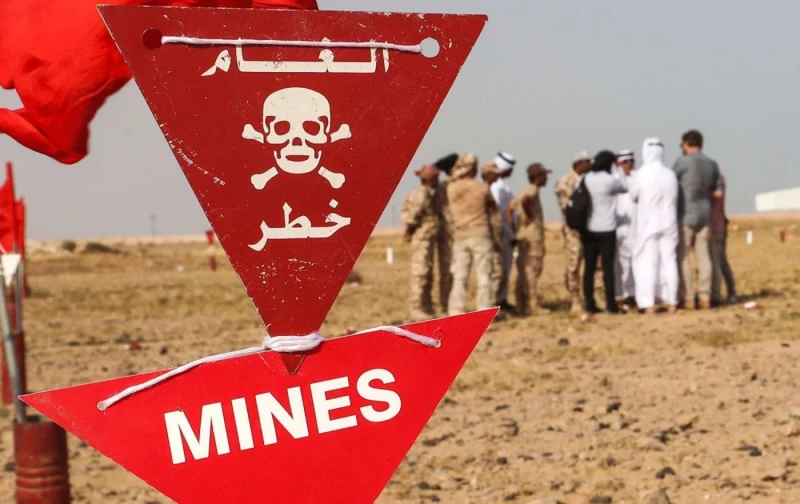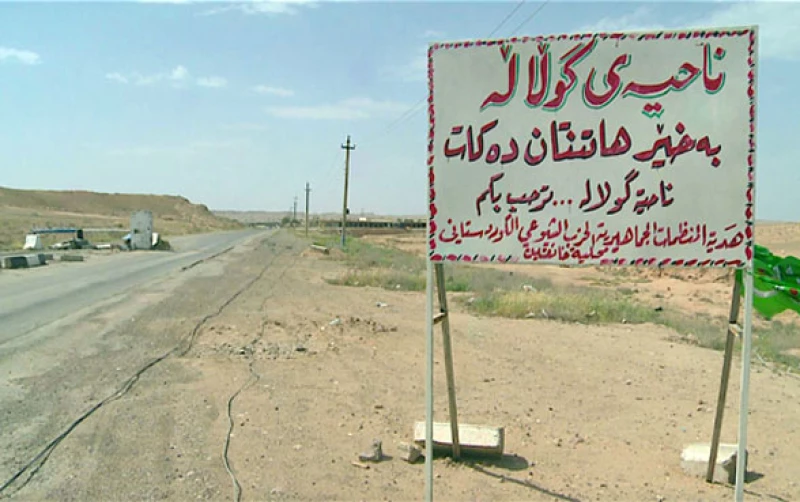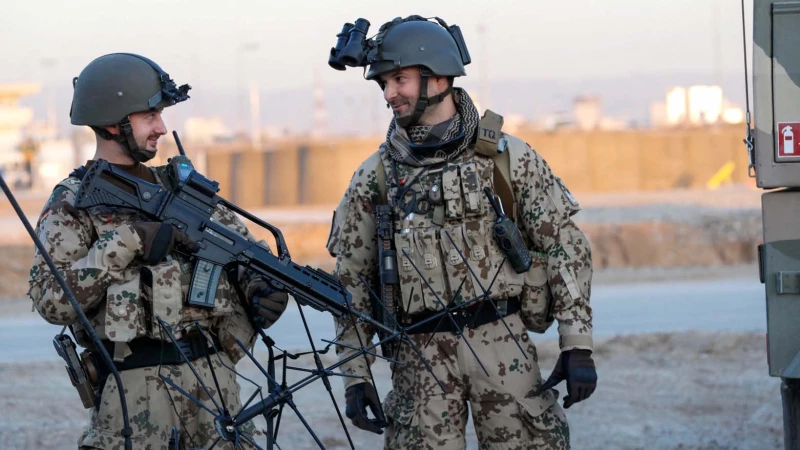ERBIL, Kurdistan Region of Iraq - Kurdistan Region Prime Minister Masrour Barzani on Saturday told Kurdish representatives in the political process in Baghdad that their main duty must be defending the interests of the people of the Region, regardless of political affiliation.
The Kurdistan Region’s Council of Ministers on Saturday held an irregular meeting in Erbil with Kurdish ministers in the federal government and heads of parliamentary blocs in the Iraqi parliament, aimed at discussing the next steps for the Kurdish representation in the political process in Baghdad amid ongoing budget issues.
“Baghdad’s current treatment of the Kurdistan Region is not a federalism treatment… We have reached the point where we believe Baghdad’s current treatment of the Kurdistan Region is an oppressive, unjust, and unfit treatment,” Kurdistan Region Prime Minister Masrour Barzani, who chaired the meeting, told the Kurdish representatives, stressing that the people of the Region deserve a better treatment.
The premier emphasized the need for a united Kurdish front in Baghdad to defend the rights and financial entitlements of the people of the Kurdistan Region, urging the ministers and lawmakers to work toward that end regardless of their political affiliations.
“Political affiliation must not prevent you from representing the Kurdistan Region. Whether you are at a ministerial level or head of parliamentary bloc, the people are expecting you to act as one and represent all of Kurdistan,” Prime Minister Barzani noted.
“You have an important responsibility on your shoulders… Your greatest duty is your national duty. You are representatives of the people of the Kurdistan Region… and your first duty, in our and the people’s opinions, is to defend the interests of the people of Kurdistan,” he added.
Salaries of the Kurdistan Region’s civil servants and the Region’s share of the federal budget have long been a point of contention between the federal and regional governments. As of the time of this writing, the Kurdistan Regional Government (KRG) has not been able to pay its civil servants their December 2024 salaries, citing Baghdad’s refusal to send the agreed upon amount for said salaries.
Another topic of discussion during Saturday's meeting is the resumption of the Kurdistan Region's oil exports, which have been halted since March 2023, dealing a major blow to Iraq and the Region's economy, with over $25 billion in lost revenue to date.
In a Wednesday interview with The New Region, KRG Spokesperson Peshawa Hawramani said that as the country enters a new fiscal year, Erbil is insistent that the current situation cannot go on.
Hawramani said that the first step is to make sure Kurdish representatives in Baghdad, including those who hold ministerial positions, talk with the federal government in a bid to resolve this issue, but if that fails to bear fruit, withdrawal from the Iraqi political process is certainly a possibility.
“It is not a matter where we can easily say we will withdraw, but it is not impossible,” he said. “It is not something that we can say is far from happening, it could happen if this treatment continues.”
The Kurdistan Region's Kurdistan Democratic Party (KDP) and the Patriotic Union of Kurdistan (PUK) are both part of Iraq's ruling State Administration Coalition and have two ministers each in Mohammed Shia' al-Sudani's cabinet. Additionally, Kurdish lawmakers make up 62 of the Iraqi parliament's 329 seats, and also hold the post of the legislature's second deputy speaker.
Representatives of the New Generation Movement (NGM), Kurdistan Islamic Union (KIU), and Kurdistan Justice Group (Komal) were notably not in attendance for Saturday's meeting. The blocs have a combined 14 seats in the Iraqi parliament, but no ministers in Baghdad.



 Facebook
Facebook
 LinkedIn
LinkedIn
 Telegram
Telegram
 X
X


